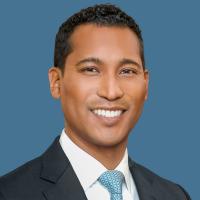
Is Toxic Polarization Fertile Ground for Christians to Share Their Faith?
WASHINGTON – President Donald Trump's recent executive order protecting religious freedom comes as Christians in the United States say they're facing growing persecution and are wary of sharing their faith in the public square.
It's a topic that can be difficult to broach with today's stark divisions on almost every issue from life to religion and education to health care.
But could the toxic polarization actually be fertile ground for evangelical Christians to share their faith?
Thann Bennett, author of the recently released book In search of the King, thinks it is.
"We, as believers, have often falsely assumed that we have to make a choice: that we have to either care for those around us or contend for those around us or contend for good government," explained Bennett, who works as the director of government affairs for the American Center for Law and Justice. "I just vehemently reject that as a false choice."
Bennett believes Christians should do both and not underestimate their potential as a force for good.
And recent analyses from public polling seem to support that idea.
A 2017 Pew Research survey shows Americans feel more warmly about religious groups now than they did just a few years ago. Another poll found rising support for churches, temples, and mosques to express their views on social and political issues.
Still, Bennett and others warn not to confuse eternal goals with earthly priorities.
"Politics are not going to save us," said Rod Dreher, a conservative Christian writer and author of The Benedict Option.
While Dreher advocates for evangelicals and orthodox Christians to be politically engaged and fight for the issue of life and religious liberty, he told CBN News that politics has its limits.
"All the political victories in the world are not going to stop the decay of the church. Only repentance and return to an authentic Christian way of life will set us aright," he said.
Both men agree now is the time to make a stand.
"I think we desperately need people of all walks of life, all political backgrounds, all professions to stand up and say without shame that I serve the king," Bennett said.
It is the central idea addressed in his book.
"As passionate as I am about advocating for good government, that is never going to fill that permanent void," Bennett explained. "I wanted to write this book to point people in a direction that if they . . . find that thing that they're searching for, that what they find is something that satisfies them."
Bennett acknowledges writing a book on theology – outside of his profession – was a leap of faith and an unplanned turn down life's path.
But his wife, Brooke, believes the experience helped them grow deeper in their faith, while teaching their children an important lesson about trusting God.
"What they're going to see when they look back at this season of our life is that because their daddy found his identity in Christ, he was able to do something that he may, in his own humanness, would not be able to do," Brooke said. "But because he trusted God and knew he served a big God, that anything became possible."




